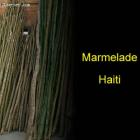ADVERTISEMENT
Government
All the information related to the current government of Haiti will be shared here. This is the section for discussion on where our country is going with the leaders
Laurent Lamothe in Ivory Coast, pushing for Haiti integration in African Union
Haitian Prime Minister, Laurent Lamothe continued the recent spate of travel for Government Officials and Ministers, as they seek international aid and investment to support Haiti's struggling economy. Serving in his stead was Tourism Minister Stephanie Villedrouin, who acted as Prime Minister until Lamothe returned.
A day after President Michel Martelly left the island, the Prime Minister left for the West African nation of the Ivory Coast to seek integration for Haiti into the African Union; his office's official statement being that he would be discussing 'potential cooperation between the two countries'. This came after a busy month spent visiting other Caribbean Islands, South America and the United States.
Public Document Management Modernization, Haiti National Archives (ANH)
Haiti's Ministry of Planning hosted the 15th Thursdays of the Public Governance Conference on May 12, 2013. This year's theme, "Public Management and Good Governance: Modernization of Public-Document Management" dealt with updating Haiti's antiquated system of document management.
Content Management Specialist, Maude Doyon, was the main presenter. She emphasized the necessity of archiving public records, and providing a regulatory and legal framework to manage storage and retrieval of them. The purpose of the archive, she explained, would be sharing of archival material accessed through a content management system (CMS) from a central repository.
Document Archivist and Director of Haiti National Archives (HNA), Jean Bélizaire, spoke next. He gave an overview of Haiti's archival system and said the 2010 earthquake had worsened an already out-of-date manual archival system, which lacks inter-departmental uniformity.
Deputy Arnel Belizaire denied renewal of diplomatic visa by U.S. Consulate
If there is one Haitian official that does keep the media occupy, it's none other than our famous Deputy of Tabarres Delmas, Arnel Belizaire. After his recent issue at Haiti Post office and the Parliamentary session, now, according to some unconfirmed report, Deputy Arnel Belizaire has been denied the renewal of his diplomatic visa by the U.S. consulate in Port-au-Prince.
Can someone confirm this?
According to haitinews509.net, the information was confirmed by Deputy Arnel Belizaire that his application for the renewal of his diplomatic visa not granted by the United States.
Assuming this is a fact. Can a foreign government just make a unilateral decision without presenting causes to denied renewal of diplomatic visa of an official?
Rene Preval and his Second presidency
He was first elected to the post of Haiti's President with a staggering 88% of the popular vote. René Préval again ran for president as the Lespwa candidate but, unlike his first election, this proved not to be a clear-cut victory. When early voting results were released on February 9, they indicated a 60% favorable voting for Préval. This number slipped to 48.7% as more ballots came in and a run-off became necessary.
There were celebrations soon after for the former president, but his comment on February 14, that fraud was at play in the vote counting and that he should be declared the winner of the first round, caused a series of protests to erupt. Port-au-Prince was crippled by torched barricades and protestors stormed the Hotel Montana, demanding the results of the election. Finally, on the 16th, after excluding blank ballots from the count, President Préval officially won his second term as the Haitian head of state with 51.15% of the votes.
Rene Preval and his First presidency
René Garcia Préval had his first turn as Haitian president the first elected in the country's independent history who served a full term lasting from the 7th of February 1996 to the 7th of February 2001, previously having briefly served as Prime Minister in 1991. Préval won the five year seat with 88% of the popular vote, making him the second head of state elected through a democratic process in Haiti's 200 years of history.
Rene Préval used his presidency to influence the implementation of various reforms to the economy, leading to a significant fall in the rate of unemployment by the end of his term, and to support the investigation of instances of human rights violations perpetrated by the police and the military. He brought about the privatization of government companies and, after dissolving parliament in 1999, spent the duration of his presidency ruling by decree.
Rene Preval and marriage with Elisabeth Debrosse Delatour Preval
Whoever said love only happens once had certainly not read about the twice divorced former Haitian President René Préval and his wife Elisabeth, the widow of the Bank of the Republic of Haiti's former governor, Leslie Delatour. Indeed, no strangers to matrimony at sixty-six and forty-seven respectively, the two took the familiar vows, made fresh by their new commitment to each other, on Sunday December 6, 2009 at the Delatour home in Furcy, Haiti at 11am. It was an intimate ceremony, with only fifty guests. They followed it by honeymooning for two days and then took up residence in the National Palace on December 9.
Rene Preval and relationship with Hugo Chavez, Venezuela
Former President René Préval once captioned the energy crisis in Haiti, stating that, in Port-au-Prince, they had an average two hours of electricity daily. In the rural areas, this electricity shortage is even worse. It is due to the lack of fuel to run generators, a lack which Ugo Chavez and the Venezuelan Government had offered to resolve for years.
When newly independent Haiti gave refuge and arms to the South American Liberator Simón Bolívar in 1815, they were unwittingly investing in the country's future, as it was this act which spurred Chavez into the courtship of Haiti and the 'pragmatic' Préval.
1843 Constitution of Haiti
Charles Riviere-Herard seized power as Haiti's 5th president in 1843, after staging a coup. His reason was the amended 1843 Constitution, passed without his knowledge. Hérard ruled for one year, plagued by two civil uprisings, and failure to repossess the Dominican Republic (DR) as part of Haiti's empire.
During the battle to re-establish Haitian rule over the DR, insurgents were gathering in rural Les Cayes. Known as the Army of the South, they fought to capture Port-au-Prince in a coup attempt. But they did not succeed. In the meantime, another uprising was fomenting in northern Haiti, incited by opposition to Charles Riviere-Herard's government. Confronted with the latest effort to unseat him from office, he tried to maintain control by breaking up Parliament and banning the amended 1843 Constitution. After dissolution of his government, he fled from office and exiled himself to Jamaica where his life ended.
Haiti Constitution of 1807
Title I. Abolishes slavery, grants residents full citizenship rights, protects property, and administers the death penalty for murder.
Title II. Sets up organization of government, appointing Henry Christophe President and Commander-in-Chief of the military. Empowers him to appoint his successor, sign treaties, and declare war.
Title III. Establishes Council of State and its functions under the President. Creates an Office of the Budget, presided over by a Budget Finance Director.
Title IV. Budget Finance Director shall also handle administration of Navy and Interior.
Title V. Creates a Secretary of State responsible for all intra- and inter-departmental correspondence, preparation of official government documents, and co-signatory duties.
Francois Duvalier's Violations of the 1957 Constitution
François Duvalier, Haiti's 40th President, raised in a prosperous family and well-educated, obtained his medical degree from the University of Haiti. He was a compassionate public-health official, who brought relief to Haitians suffering outbreaks of tropical illnesses. This earned him the name Papa Doc. He retained it forever, using it as a tool of manipulation.
After Duvalier returned from exile (due to a coup of a political ally), he ran on a populist platform for the presidency. Supported by the Haitian Army, he attacked mulatto elites, aligning himself with black nationals. He won the election against Déjoie, a mulatto real-estate tycoon.
Our objective is to share with you news and information about Haiti and the people of Haiti. Traditions, habits and the way we were or grew are alive in this site. We highly recommend that you Subscribe to our Newsletter and also share with us some of the things that are memorable and made us unique people.

 Maissade, Haiti
Maissade, Haiti  Haitians are a Proud People
Haitians are a Proud People  Something to think about
Something to think about  Marmelade, Haiti
Marmelade, Haiti  Saint Michel de L 'Atalaye
Saint Michel de L 'Atalaye